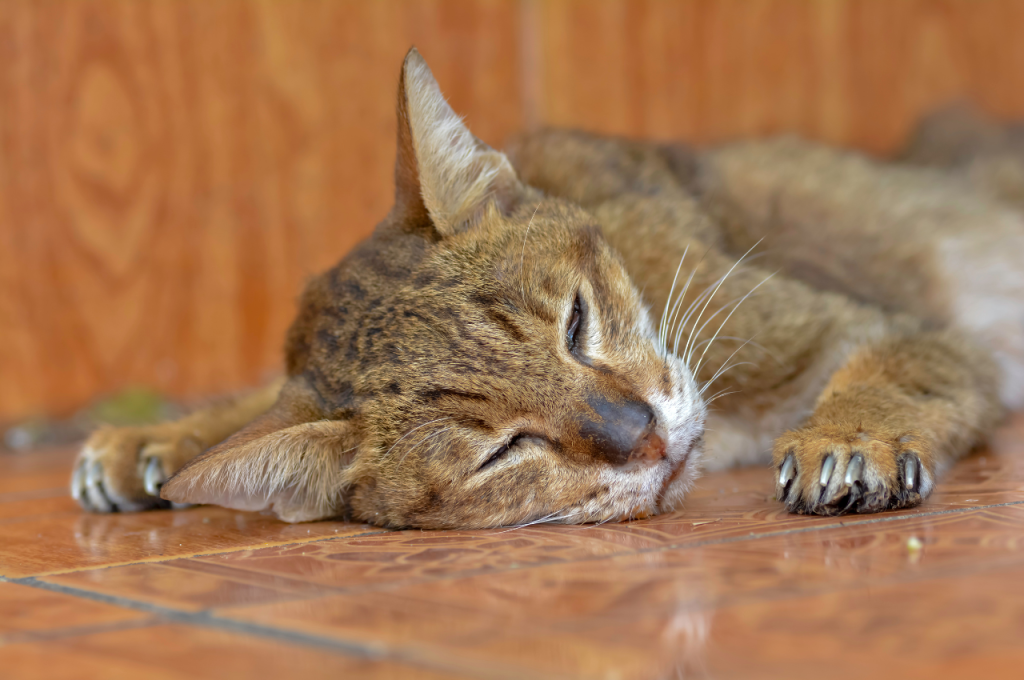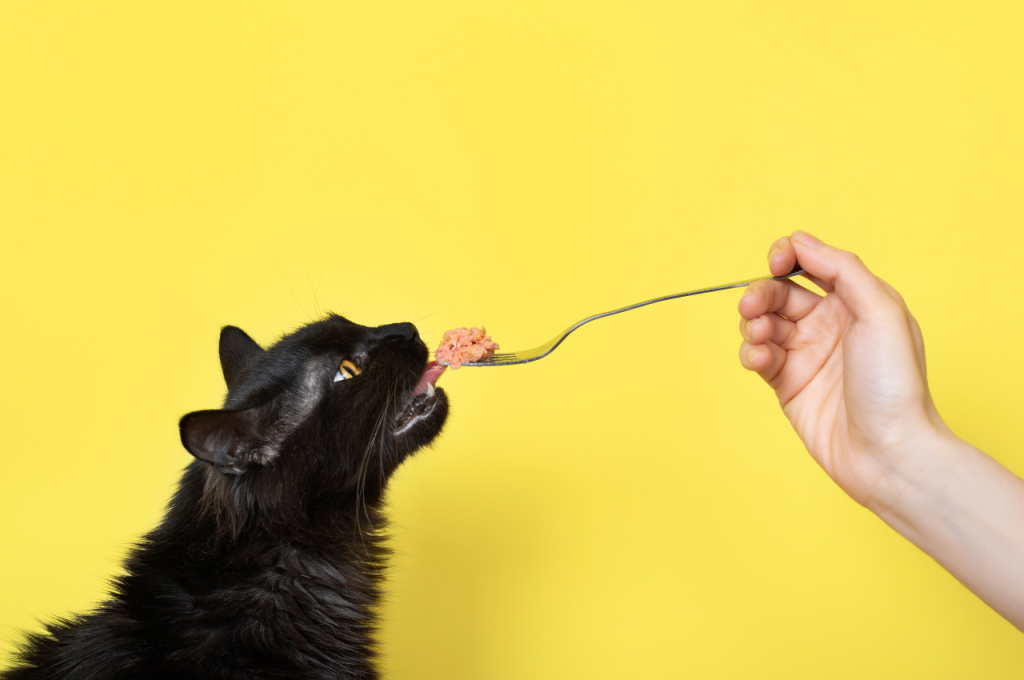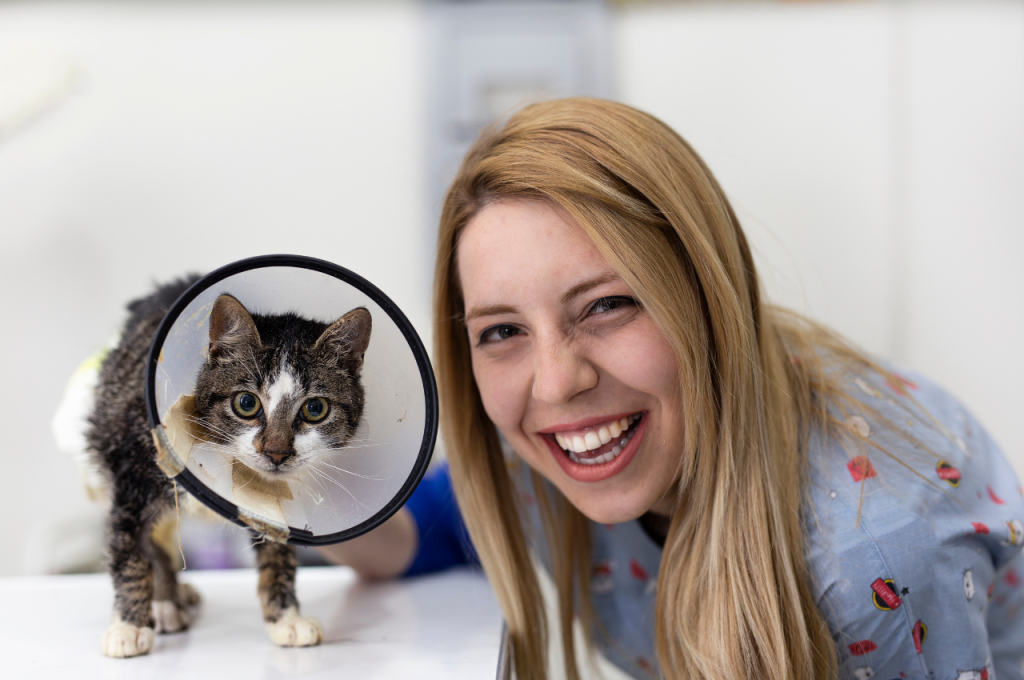For sick cats not eating, try offering tasty wet food, warming it slightly, or adding tuna water. Providing a quiet, stress-free environment and tempting with cooked chicken can help entice them to eat.
Monitor their condition closely and consult a vet if the issue persists, as a loss of appetite can signal a more serious health problem. Remember, always prioritize your cat’s well-being and seek professional advice when needed. Your furry friend’s health is of the utmost importance, so prompt action is key to ensuring their recovery.
By implementing these simple remedies and closely monitoring your cat, you can help them feel better and regain their appetite.
Introduction To Feline Appetite Loss
Discover effective home remedies to stimulate appetite in sick cats. From warming up food to offering high-protein options, these strategies can encourage your feline friend to eat and aid in their recovery from appetite loss.

It can be concerning when your beloved feline companion refuses to eat. Feline appetite loss, also known as anorexia, is a common issue faced by cat owners. Cats may stop eating for various reasons, and it is essential to address this problem promptly to ensure their health and well-being. In this article, we will explore some common causes of appetite loss in cats and discuss when it is necessary to seek veterinary care.
Common Causes
Appetite loss in cats can be attributed to several factors. Understanding these common causes can help you identify potential reasons why your cat is not eating:
- Illness or Pain: Cats may lose their appetite when they are unwell or experiencing pain. Infections, dental problems, gastrointestinal issues, or other underlying medical conditions can contribute to their decreased desire to eat.
- Stress or Anxiety: Cats are sensitive creatures, and changes in their environment, such as moving to a new home or the presence of new pets, can cause stress and anxiety. These emotional factors can lead to a loss of appetite.
- Dietary Changes: Introducing new food or abruptly changing your cat’s diet can result in a temporary loss of appetite. Cats are known for their particular taste preferences, and they may need time to adjust to new flavors or textures.
- Environmental Factors: Unpleasant smells, extreme temperatures, or noisy surroundings can affect a cat’s appetite. Ensuring a calm and comfortable environment for your feline friend is crucial.
When To See A Vet
While some instances of appetite loss in cats may resolve on their own, there are situations where veterinary intervention is necessary. It is essential to be aware of these signs and seek professional care for your cat:
- Prolonged Appetite Loss: If your cat refuses to eat for more than 24 to 48 hours, it is crucial to consult a veterinarian. Prolonged appetite loss can lead to serious health complications.
- Weight Loss: Significant and rapid weight loss in cats can be a sign of an underlying health issue. If you notice your cat losing weight along with a decreased appetite, a vet visit is warranted.
- Behavioral Changes: If your cat exhibits unusual behavior, such as lethargy, hiding, or vomiting in addition to not eating, it is recommended to seek professional advice. These behavioral changes may indicate a more serious underlying problem.
- Other Symptoms: Any accompanying symptoms like diarrhea, excessive thirst, or difficulty breathing should not be ignored. These signs may indicate a more severe condition that requires immediate attention.
Remember, as a pet owner, you play a vital role in monitoring your cat’s health. By recognizing the common causes of appetite loss in cats and knowing when to seek veterinary care, you can help ensure your feline friend receives the necessary attention and treatment.
Hydration Is Key
Encouraging Water Intake
Encouraging your sick cat to drink water is crucial for their recovery. Offer fresh water in a clean bowl and consider using a pet water fountain to entice them to drink. Add a few ice cubes to the water to make it more appealing, and ensure the water is easily accessible and placed in multiple locations throughout your home.
Signs Of Dehydration
It’s essential to monitor your cat for signs of dehydration. Watch for symptoms such as sunken eyes, dry and tacky gums, lethargy, and loss of skin elasticity. If you notice any of these signs, it’s crucial to seek veterinary care promptly.
Warm And Soft Foods
When a cat is sick and not eating, it is important to provide them with warm and soft foods that are easier to consume and digest. These types of foods can help entice sick cats to eat and provide them with the necessary nutrients to aid in their recovery.

Heating Up Meals
Heating up your cat’s meals can make them more appealing and appetizing. Warm food releases enticing aromas that can stimulate a cat’s appetite. To warm up your cat’s food, you can:
- Place the food in a microwave-safe dish and heat it for a few seconds until it reaches a slightly warm temperature.
- Alternatively, you can warm the food by placing the dish in a bowl of warm water for a few minutes, ensuring it doesn’t become too hot.
Preferred Soft Foods
Cats who are not feeling well may have difficulty chewing and swallowing harder foods. Offering them soft foods can make it easier for them to eat and digest. Some preferred soft foods for sick cats include:
- Canned wet food: This type of food has a higher moisture content and is easier for cats to eat and digest. It also provides hydration, which is important for sick cats.
- Baby food: Certain types of baby food, such as plain chicken or turkey purees without any added seasonings, can be a suitable option for sick cats. Ensure the baby food does not contain any harmful ingredients like onions or garlic.
- Homemade bone broth: A warm and nourishing broth made from boiling chicken or turkey bones can provide essential nutrients and help stimulate a cat’s appetite.
- Pate-style wet food: This type of wet food has a smooth and soft texture, making it easier for cats to consume.
Remember to consult with your veterinarian before making any changes to your cat’s diet, especially if they have specific dietary restrictions or medical conditions. Providing warm and soft foods can help encourage a sick cat to eat and aid in their recovery, but it is crucial to address any underlying health issues with professional guidance.
The Power Of Scent
Using Aromatic Foods
Introduce your sick cat to appealing smells by offering aromatic foods such as tuna or chicken broth. The strong scents can stimulate your cat’s appetite and entice them to eat. Consider warming the food slightly to enhance the aroma.
Safe Herbs And Spices
Some herbs and spices can be added to your cat’s food to enhance its smell and taste. Catnip and parsley are examples of safe options that can attract your cat to their food. Always consult your vet before introducing new herbs or spices to your cat’s diet.
Hand Feeding Techniques
Hand-feeding techniques can be a crucial way to ensure that your sick cat is getting the nourishment they need. When a cat is unwell and not eating, it’s essential to use gentle persuasion and patience to encourage them to eat. Here are some effective hand-feeding techniques that you can use to help your cat during this difficult time.
Gentle Persuasion
Gentle persuasion is key when hand-feeding a sick cat. Using a small, clean finger, offer a small amount of their favorite food near their mouth. Let them smell it and gently touch their lips to encourage them to lick the food.
Patience And Care
Patience and care are vital during the hand-feeding process. Sit with your cat in a quiet, comfortable space and give them time to show interest in the food. Offer small amounts frequently and avoid forcing the cat to eat.
Creating A Comfortable Environment
To create a comfortable environment for sick cats not eating, try using home remedies such as warming their food slightly to enhance the aroma and offering tasty, high-calorie options like baby food or canned tuna. Providing a quiet, cozy spot and gentle, reassuring attention can also help soothe your furry friend.
Reducing Stress
- Play soft music or white noise.
- Provide a familiar blanket or toy.
- Ensure a quiet and calm atmosphere.
Quiet And Warm Spaces
- Set up a cozy bed in a secluded area.
- Keep the room temperature warm.
- Avoid loud noises and sudden movements.
Monitoring Progress And Adjusting Care
When caring for a sick cat that refuses to eat, monitoring progress and adjusting care is crucial for their recovery. Regularly observe your cat’s behavior and appetite to track improvements or setbacks.

Signs Of Improvement
- Increased interest in food
- More energy and playfulness
- Weight gain on the scale
When To Revisit The Vet
- Persistent lack of appetite
- Severe lethargy or dehydration
- No signs of improvement after 48 hours
Conclusion
Overall, it is important to keep in mind that sick cats not eating can be a serious issue and should not be ignored. While there are home remedies that can help stimulate their appetite, it is always best to consult with a veterinarian for proper diagnosis and treatment.
By providing your sick cat with a comfortable and stress-free environment, offering tasty and nutritious food, and monitoring their behavior closely, you can help them on the road to recovery. Remember to always prioritize your cat’s health and well-being.
